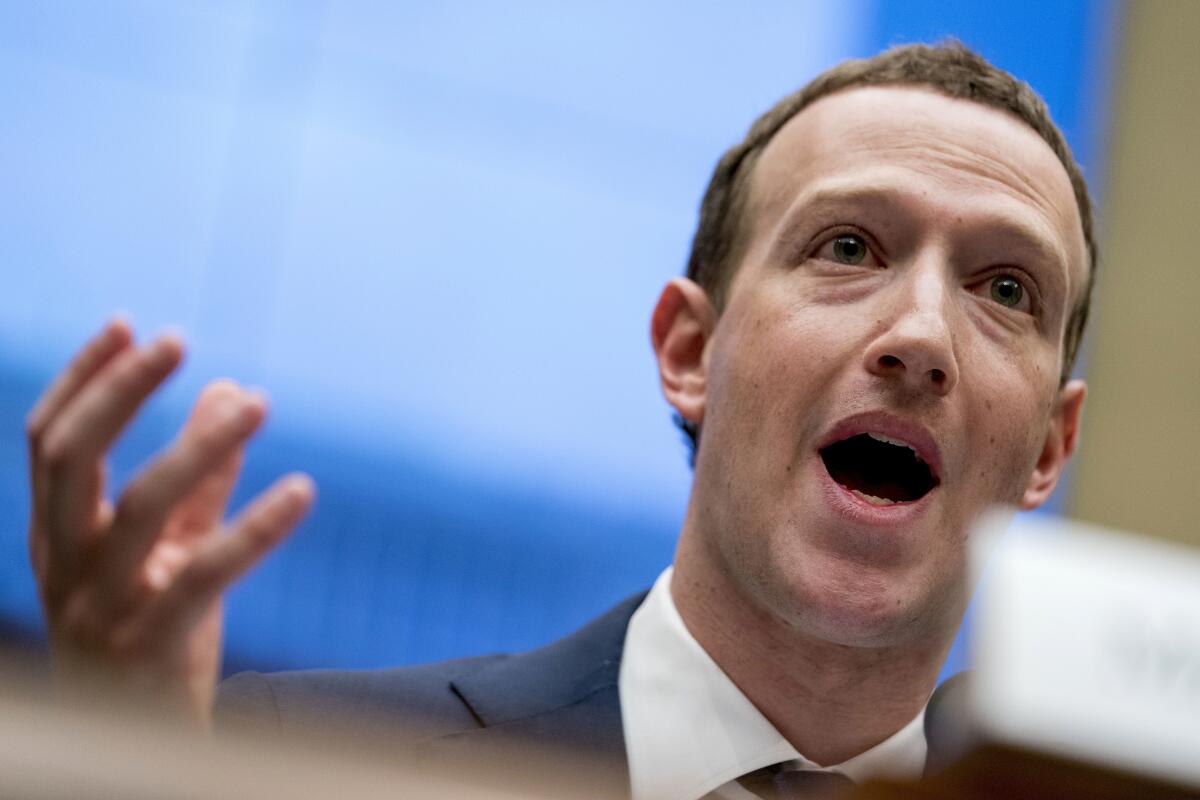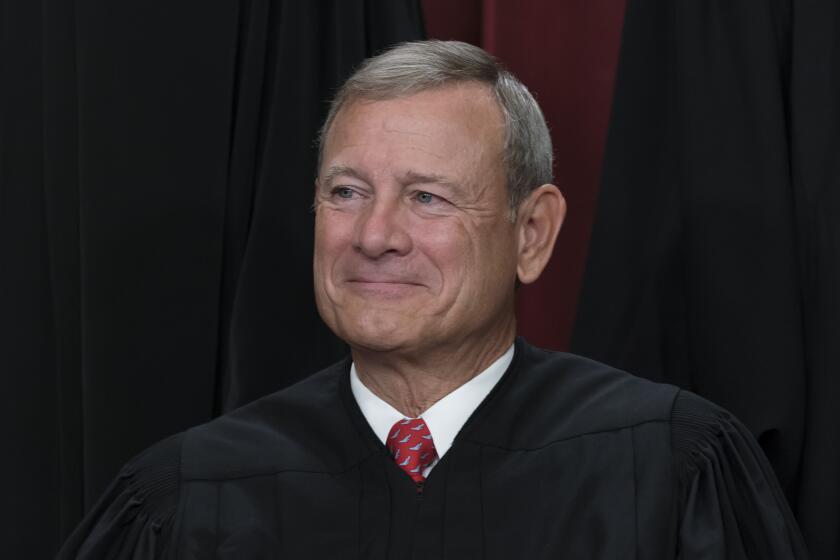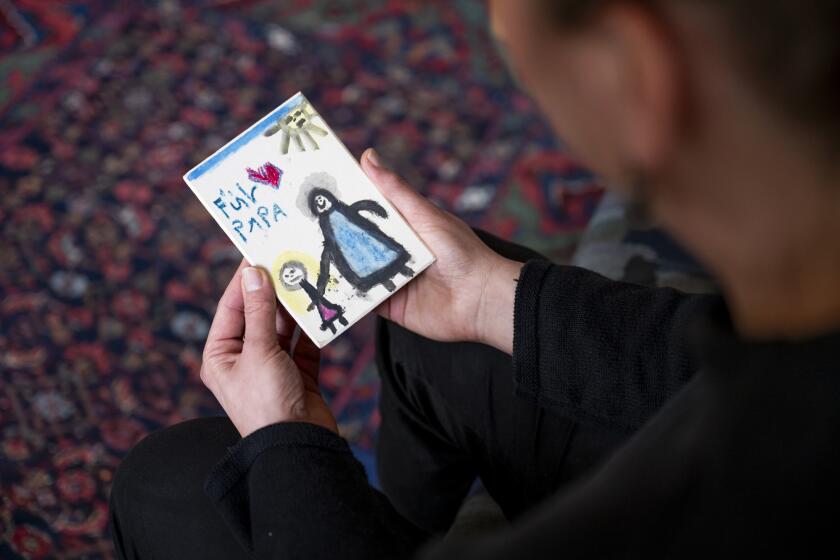Chris Reed: Facebook knows it hurts millions of people. But Mark Zuckerberg doesn’t care.

In 1906, after years of reports of opium being used in medicines for children and of many deaths due to adulterated products that often used dangerous chemicals as preservatives and addictive ingredients, President Teddy Roosevelt persuaded Congress to adopt the Pure Food and Drug Act. It was a model for the world.
In 1957, three years after the U.S. Supreme Court ruled in Brown v. Topeka Board of Education that segregated schools were “inherently unequal,” President Dwight Eisenhower reacted to Southern states resisting the edict by ordering the 101st Airborne Division into Arkansas to ensure the safety of the nine Black students who had been blocked by Arkansas Gov. Orval Faubus from enrolling in Little Rock’s Central High School. The troops stayed for two months, sending an unmistakable message that overt Jim Crow policies would no longer be tolerated by the federal government.
In 1970, recognizing that federal laws targeting air and water pollution were being poorly enforced, President Richard Nixon ordered the creation of the U.S. Environmental Protection Agency. It won approval of automobile pollution standards and improvements to water-treatment facilities, among many of its early accomplishments.
The point is that federal leaders are capable of decisive action in response to huge national issues. They just have to muster the will to take on these problems.
Now The Wall Street Journal has come up with a smoking gun that establishes how perhaps the most powerful company in America — Facebook — is callously, knowingly damaging the mental health of millions of young people through its Instagram app. Yes, the idea that social media apps play havoc with the self-esteem of people, especially girls and young women, has been a part of the cultural debate for years. San Diego State University professor Jean Twenge was a pioneer in making the case that there is an obvious correlation between the rise of smart phones with social media apps and growing depression and suicidal thinking among the young.
But Facebook CEO Mark Zuckerberg has pushed back hard on this argument. “The research that we’ve seen is that using social apps to connect with other people can have positive mental-health benefits,” he said at a congressional hearing in March.
Yet according to the Journal, this claim was annihilated by years of Facebook’s own research about the effects of Instagram, which it bought for $1 billion in 2012. “Thirty-two percent of teen girls said that when they felt bad about their bodies, Instagram made them feel worse,” researchers said in a March 2020 slide show posted on Facebook’s internal message board. Instagram also triggered lower self-esteem among 14 percent of teen boys.
One slide said, “Teens blame Instagram for increases in the rate of anxiety and depression.” Researchers found 13 percent of British teens and 6 percent of U.S. teens who reported suicidal thoughts did so due to self-esteem issues related to Instagram.
Five reports were made to Facebook officials based on focus groups and online surveys of thousands of Instagram users. All cited the danger to users that is inherent in how the site creates a competition to offer the most flattering photo posts about users’ lives. Zuckerberg chose to keep this under wraps because youth use of Instagram is central to Facebook’s business model.
Twenge and several politicians noted the precise parallels between Facebook’s behavior and that of U.S. tobacco companies. As historian Robert N. Proctor documented decades ago, lung cancer was rare before cigarette smoking exploded in popularity toward the end of the 1800s. By the 1940s, epidemiology, cellular pathology and animal experiments had all confirmed that cigarettes were behind the global epidemic of lung cancer. Tobacco companies’ research in the 1950s confirmed this.
But they launched a decades-long disinformation campaign arguing that the science was shaky, and bitterly fought the U.S. Surgeon General’s Office over its successful push to require that health warning labels be put on cigarette packs beginning in 1964. It is accurate to describe this as an international conspiracy. In 1976, seven of the world’s largest tobacco companies launched Operation Berkshire, which set up front groups to dispute the idea that cigarettes were dangerous and paid scientists to challenge the consensus of medical professionals that of course it was dangerous to inhale burning substances and chemicals on a regular basis.
Now, of course, it is dangerous to regularly expose teens to images that make them feel unattractive and third-rate. The Biden administration and Congress should address their mental health, and families of teens who killed themselves because of Instagram should sue Zuckerberg. The Wall Street Journal’s reporting shows his direct responsibility for the despair of those whose self-esteem is based on how they are perceived and how they perceive themselves on social media. History will remember Zuckerberg as a monster.
Reed is deputy editor of the editorial and opinion section. Column archive: sdut.us/chrisreed. Twitter: @calwhine. Email: chris.reed@sduniontribune.com.
Get Weekend Opinion on Sundays and Reader Opinion on Mondays
Editorials, commentary and more delivered Sunday morning, and Reader Reaction on Mondays.
You may occasionally receive promotional content from the San Diego Union-Tribune.











